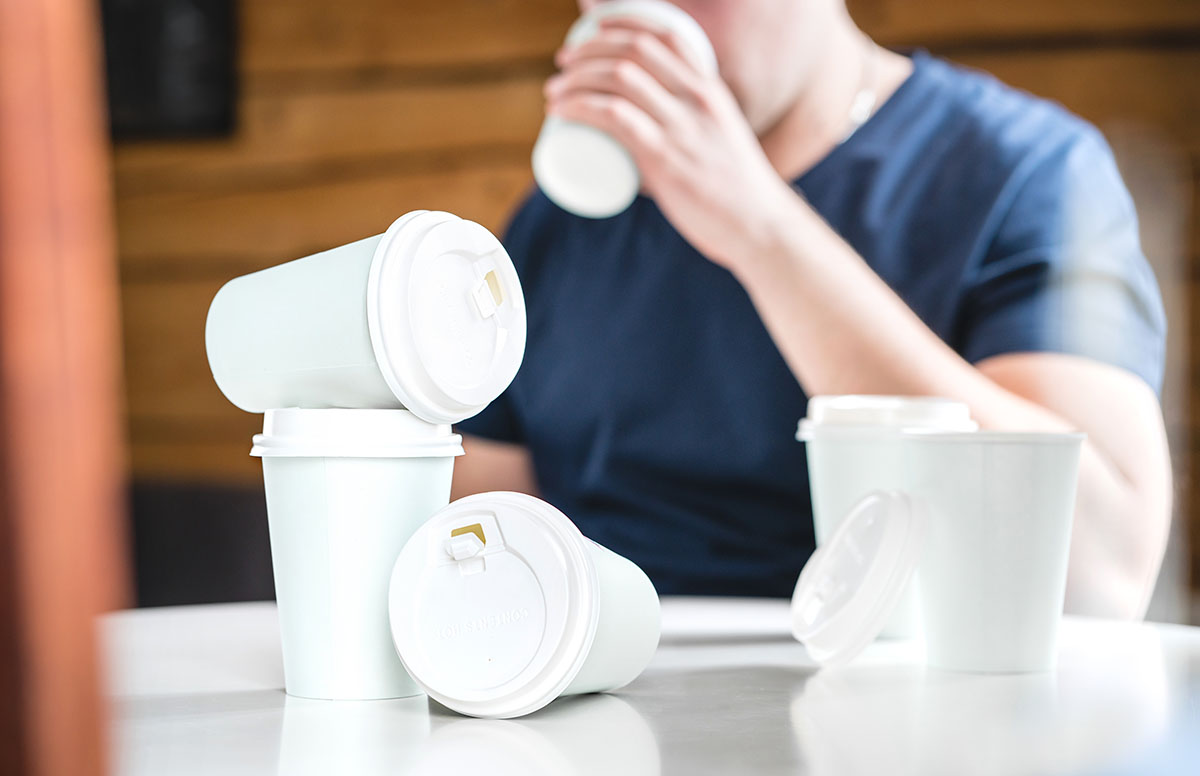You are not alone if you can’t imagine starting your day without a cup of coffee. But is this a healthy or harmful habit? Maybe your doctor told you to cut down on your caffeine intake. Learn more about cutting back on caffeine to help you live a healthier, happier life.
What Is Caffeine?
Caffeine is a natural substance called a stimulant. Stimulants excite your body. They help you to feel more awake, alert, and energetic. Caffeine makes you feel this way because it acts upon your brain. Some common foods and beverages with caffeine are coffee, tea, chocolate, soft drinks, energy drinks, and supplements.
Is Caffeine Good For Me?
Some caffeine is good for you, but too much is not. Caffeine acts on your brain like a drug. Just like you can become addicted to drugs, your body and brain get used to caffeine over time, craving more caffeine to feel the same way. Healthy adults are advised to limit their daily caffeine intake to about 400mg or about 4.5 cups of brewed coffee per day. One cup is equal to 8 fluid ounces.
Some of the health benefits of moderate amounts of caffeine are:
- Reduced risk of heart disease
- Reduced risk of Type 2 diabetes
- Better mood, less depression, improved concentration
- A boost in muscle strength and endurance before exercise
Why Should I Cut Back?
The expression “you can have too much of a good thing” applies to caffeine too. Depending on how much caffeine you consume or your other health conditions, your doctor may suggest reducing your caffeine intake. You might want to try cutting back if you have:
- Increased anxiety
- Trouble sleeping
- You have high blood pressure
- You take medications that caffeine interacts with
- Depression
- You have chronic headaches
- You have diabetes, gout, IBS, or acid reflux
- You leak urine or have to urinate (go to the bathroom) more often
Your own body is good at telling you when you have had too much caffeine. The usual signs are your heart beating quickly, restlessness, stomach upset, feeling irritable, frequent urination, headaches, and muscle twitches or shakiness. It is possible to overdose on caffeine, just like you can overdose on other drugs.
Why Do I Feel So Bad When I Cut Back On Caffeine?
Your body and brain get used to caffeine’s stimulating effects. Suddenly stopping drinking coffee or limiting your caffeine can cause withdrawal symptoms because your body and brain miss the caffeine. You may have:
- Headaches
- Brain fog
- Upset stomach
- Irritability
- Feeling tired
- Bad Mood
These symptoms can last anywhere from 2-7 days. They are worse for some people than for others.
How Do I Cut Down My Caffeine Intake?
First, add up all of the caffeine-containing beverages, foods, or supplements you have on a typical day and keep a caffeine diary to track your caffeine intake. Here are four other tips for how to cut back on caffeine to start feeling better.
1. Take it Slow.
Avoid withdrawal symptoms by gradually cutting back. First, replace some of your caffeinated beverages with a decaffeinated version. Try cutting out one caffeinated beverage every couple of days to give your body a chance to adjust. If you are struggling with withdrawal symptoms, try a small decaffeinated coffee or tea to “trick” your brain into thinking you are drinking some caffeine.
2. Plan for Morning Caffeine.
Caffeine stays in your body for 5-6 hours. Try reducing the amount of caffeine you have after lunchtime to help your sleep and your mood.
3. Read Labels.
Energy drinks and energy supplements contain a wide range of caffeine- some as much as 200 mg or 3 cups of coffee. Energy drinks can also be filled with sugar, adding extra calories your body does not need. If you are feeling tired or thirsty, choose a glass of water instead. Many of us do not drink enough water during our busy days, leaving us feeling tired, thirsty, and reaching for a caffeinated soda or energy drink. Read labels carefully to learn how many milligrams of caffeine there are per serving and then how many servings there are in each bottle or mug. Watch out for the caffeine hidden in some cold, allergy, weight loss supplements, and pain medicines that are available without a prescription.
4. Feel Good.
Try to do things that help you feel better and less stressed. These include regular exercise, joyful movement, spending time with friends or family, getting at least 8 hours of sleep each night, and eating regular, healthy meals.
Talk To Your Doctor About Cutting Back on Caffeine
Pregnant women, teenagers, and the elderly should talk about how much caffeine is safe for them with their doctors. Caffeine affects everybody’s brain and body differently. Small amounts of caffeine and coffee can be part of your healthy lifestyle. Paying attention to how much caffeine you actually are consuming and how it makes you feel will help you find the balance that is right for you.
 Did you know that your IE browser is outdated?
Did you know that your IE browser is outdated?






